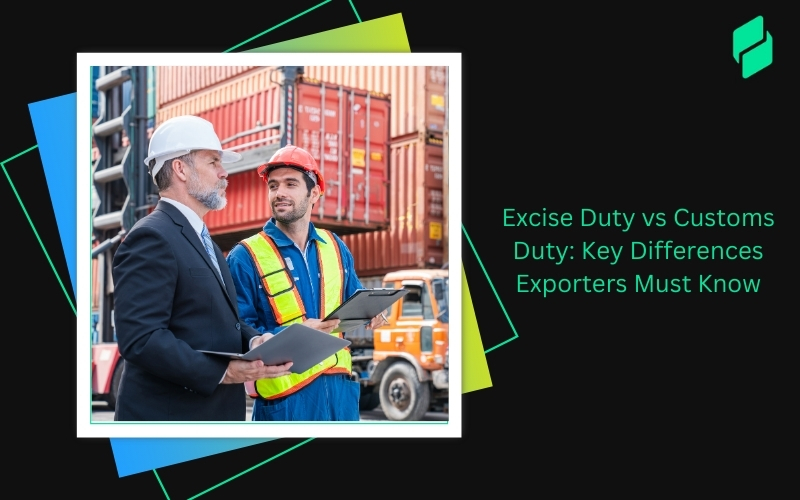Optimize your business: use unlimited savings with Pazago fulfilled now!
Get Started ->Have you ever experienced the frustration of receiving a damaged package? It's not just disappointing; it can significantly affect your perception of a brand. For businesses, especially in the e-commerce sector, shipping damage is more than a minor inconvenience; it directly threatens customer satisfaction and the company's reputation.
But what can be done to mitigate this risk and ensure that products arrive safely?
In this article, we'll explore why understanding these processes and adopting robust prevention tactics is beneficial and essential for thriving in today's market.
The Most Common Causes of Shipping Damage

Ever unboxed a much-anticipated item only to find it in pieces? It's a frustrating ordeal that's all too common in the world of shipping.
But what causes shipping damage, and how can you mitigate these risks? Let's discover the common culprits and how simple tweaks in your shipping process can make a significant difference.
1. Careless Handling of 'Fragile' Items
It’s disheartening to mark a package as 'fragile' only to be mishandled. Improper handling is one of the top reasons for shipping damage.
It is crucial to ensure your logistics partners understand the importance of caring for these packages. Are your shipping partners aware of what's at stake?
2. Incorrect Box Size and Fit
An oversized box may seem harmless but can allow items to tumble and collide during transit. Selecting a box that snugly fits your product, supported by appropriate filler materials, can reduce movement and prevent damage. How often do you reassess your packaging choices?
3. Inadequate Cushioning
Cushioning is your product’s best friend during the journey. Inadequate padding can leave your items vulnerable to impact and pressure. Utilizing materials like bubble wrap, foam inserts, or padded dividers can be a game-changer. Is your cushioning material up to the task?
4. Exposure to Harsh Weather
Water damage, humidity, or extreme temperatures can wreak havoc on your shipments. Waterproof packaging and climate-controlled transport options are vital, especially for sensitive products. Are your packages weatherproof?
5. Perishables and Special Shipping Needs
Shipping perishable items like food demands extra care. Incorrect temperature control or delayed delivery can lead to spoilage and waste. Implementing specialized containers and swift transportation options is essential. Are your perishable goods receiving the attention they need?
6. Infestation Damage
Particularly relevant for food and natural products, infestations can occur if items are not stored or appropriately sealed. Regular inspections and pest-proof packaging can help mitigate these risks. How secure is your product from unwanted guests?
7. Theft and Mishandling During Delivery
Lastly, theft or deliberate tampering during the delivery process can lead to direct loss and harm your brand’s integrity. Enhanced security measures and tracking systems can help ensure packages reach customers as intended. How protected are your shipments?
Proven Strategies to Prevent Shipping Damage
Did you know that a simple change in your packaging process can dramatically reduce the risk of shipping damage? It's true! With online shopping more prevalent than ever, ensuring that your products reach customers in pristine condition is crucial.
Let’s explore some foolproof strategies that can help safeguard your shipments and keep your customers smiling.
1. Choosing the Right Packaging
Select packaging materials that correspond to your product's weight and fragility. Consider the product's dimensions and choose a box that allows for cushioning without leaving too much empty space.
2. Enhancing Cushioning and Handling
Use materials such as bubble wrap, air pillows, and foam inserts to cushion the product. Ensure that all sides and corners are protected, especially for fragile items.
Using the correct type and amount of cushioning materials, along with thoughtful placement of dunnage, can absorb shocks and prevent movement inside the box.
3. Conducting Trial Shipments
Implementing trial shipments is one of the best ways to ensure your packaging holds up. This practice allows you to test how your packaging withstands the rigors of transit and handling.
Send a few packages to different locations using your typical shipping method. Include various handling scenarios like drops and exposure to different weather conditions.
4. Utilizing Protective Indicators
Using tilt, shock, and impact indicators can be a game-changer. These devices provide immediate feedback on handling packages during shipping and alert handlers to the need for special care. How could these indicators help you enhance package safety?
5. Emphasizing Proper Labeling
Proper labeling goes a long way in minimizing human error during shipping.
Use clear, bold labels on all sides of the package, specifying handling instructions such as “Fragile”, “This Side Up”, or “Keep Dry”. Make sure labels are waterproof and securely attached.
6. Analyzing Shipping Damage Data
Keeping a record of incidents and analyzing shipping damage data helps pinpoint recurrent issues. This analysis can drive continuous improvement in your shipping processes. Do you track and review your shipping damage incidents regularly?
7. Training Employees
Knowledgeable employees are your first line of defense against shipping damage.
Conduct regular training sessions for employees on the latest packing techniques and the importance of proper handling. These sessions should include hands-on demonstrations and feedback.
Role of Packaging Supplies and Materials in Preventing Shipping Damage

Here's how you can make smarter choices about your packaging to drastically reduce the chances of shipping damage.
1. Choosing Durable and Resistant Packaging Supplies
To minimize the risk of your packaging collapsing under weight, it's essential to choose durable and resistant supplies. This means selecting boxes made from stronger, corrugated cardboard or even double-walled options for heavier items.
Have you checked the strength of your packaging materials lately? Ensuring that your packaging can bear the load and protect the contents is a fundamental step in safeguarding your shipments.
2. Benefits of Specialized Packaging Materials
Utilizing specialized packaging materials like Bubble wrap, paper cushioning, and Airsac® significantly enhances the protection of your items.
Bubble wrap offers flexible cushioning that molds around the product, paper cushioning fills voids and adds an extra layer of shock absorption, and Airsac® provides air-filled chambers that defend against impacts.
Each of these materials has unique properties that cater to different packaging needs. Which of these could provide the best protection for your products?
3. Importance of Climate-Appropriate Packaging
Climate-appropriate packaging is vital for goods sensitive to temperature changes, such as pharmaceuticals, food products, or certain electronics.
This might involve using insulated boxes, gel packs, or specialized thermal liners that maintain a stable temperature. Are your products protected against the extremes of heat or cold they might encounter during shipping?
4. Protective and Water-Resistant Packaging
Environmental factors like moisture, rain, or excessive humidity can harm many products. Using protective and water-resistant packaging materials can shield your items from these elements.
Options include plastic wraps, sealed bags, and water-resistant coatings on boxes. How secure are your shipments against environmental threats?
Also Read: ENS Charges In Shipping
Technological and Operational Solutions to Prevent Shipping Damage
Let’s explore how cutting-edge solutions significantly impact shipping damage and improve logistics efficiency. These strategies not only prevent loss but also boost customer trust and satisfaction.
1. Adoption of New Technologies and Supply Chain Simulations
Modern technology offers incredible tools like supply chain simulations that can predict potential problems before they happen.
By modeling and simulating different shipping scenarios, businesses can identify high-risk factors and adjust their strategies accordingly.
2. Investing in Shipping Insurance
Shipping insurance might seem an additional cost, but it's a vital safety net. This financial protection measure covers the cost of goods if damaged or lost during transit, providing peace of mind for you and your customers. Isn’t knowing your investment is protected against unforeseen incidents reassuring?
3. The Significance of Route Optimization Software
Route optimization software is not just about finding the quickest path from point A to point B. It also helps choose routes that minimize delays and damage risks.
For instance, avoiding routes with a history of traffic jams or poor road conditions can reduce the time packages are in transit and susceptible to damage. How often do you reassess your shipping routes for efficiency and safety?
4. Leveraging Detailed Tracking and Insurance for High-Risk Packages
Combining detailed tracking with insurance offers a robust solution for high-value or high-risk shipments.
This approach informs you about the package’s location and ensures that any mishaps are financially covered. Have you considered enhancing the tracking and insurance of your most critical shipments?
Conclusion
In conclusion, addressing shipping damage requires a dynamic and integrated approach. Each component, from the choice of packaging materials to the adoption of sophisticated tracking systems, plays a critical role in this comprehensive strategy.
The importance of ongoing evaluation and adaptation cannot be overstressed as we advance. After all, the goal is to ensure that every package reaches its destination as intended. Are you prepared to implement these strategies and embrace the benefits of a damage-free delivery experience?


.png)








